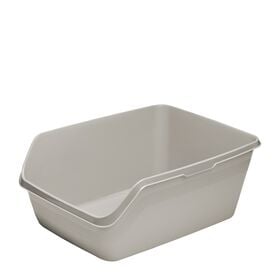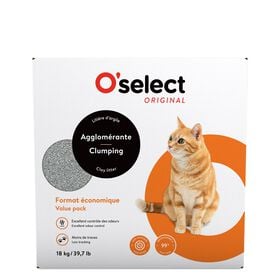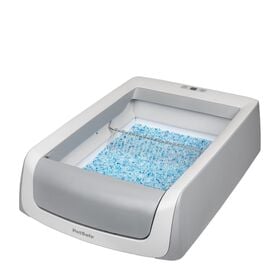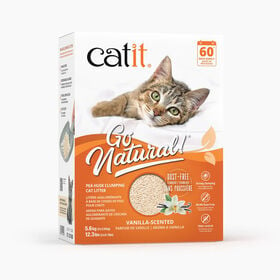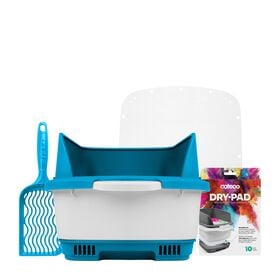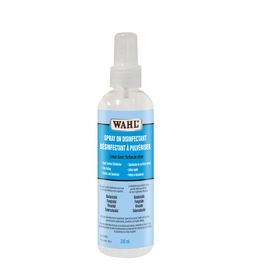You might think that an article dedicated entirely to cat litter boxes is a bit excessive. After all, aren't they pretty much the same? Isn't it just a matter of choosing the one you like best, since cats have no colour or style preferences? It's true that colour and style are not among cats' selection criteria, but other factors are extremely important for cats when it comes to choosing where to do their business, to the point where they might refuse to use the litter box and opt for the living room rug instead.
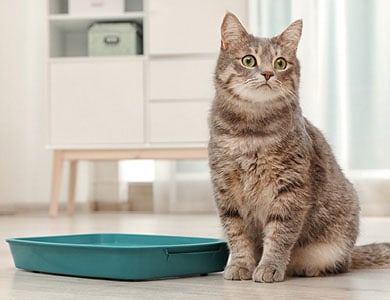
How to choose the right litter box?
"After medical causes, which always have to be ruled out first by consulting a veterinarian, the main reason that cats do their business outside the litter box, and the most often seen in consultations, is related to the litter box itself," says Daniel Filion, the Cat Educator, cat behaviour specialist. There are three key factors to keep in mind when choosing the right litter box: size, whether it is open or closed and shape, including automatic self-cleaning models.
Size matters
When it comes to litter boxes, the most important feature of all is size. In nature, cats have no limitations when it comes to the size of their litter box, so it's easy to understand that it can be unpleasant for a cat to use a litter box that's too small, as illustrated by the Cat Educator's funny analogy: "Anyone who has had to use an airplane toilet will understand how unpleasant it can be to use a litter box that's too small."
Obviously, the size of a litter box depends on the size of your cat. A giant cat of the Main Coon breed, for example, will require a much bigger litter box than a small Persian. Instead of specifying dimensions, cat behaviour specialists prefer basing the size of a litter box on the size of the cat. In general, the length of the litter box should be one and a half times the length of the cat, and the width of the box should be comparable to that of the cat. You might be surprised to discover that these dimensions are much bigger than you first imagined, and that the availability on the market of litter boxes with these dimensions is relatively limited.
"Fewer than 15% of the litter boxes on the market are of the minimum required size, and more than 50% of them are two times too small for a medium-size domestic cat. It's amazing how many people have told us that they have solved the problem of cats doing their business outside the litter box simply by giving their cat a bigger box," says Filion.
Several litter box manufacturers have become increasingly focused on cats' needs, and an increasing number of good size litter boxes are appearing on the market. Even though the choice remains limited and these litter boxes take up a great deal of space, it's always important to put your cat's needs first.
Also read: My cat is peeing all over the house! What can I do?
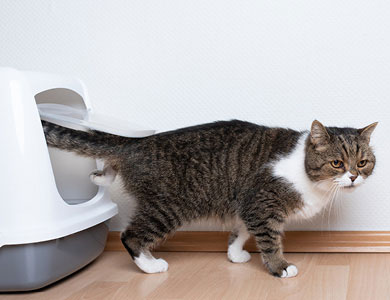
Open or closed litter box?
There are a lot more closed litter boxes sold on the market, and the two main reasons given by cat owners are that they keep the odours from getting out or simply that they help keep kitty litter inside the box. As far as blocking odours is concerned, bear in mind that the quality of the litter used has a far greater impact on odour control than having a closed litter box. As for keeping the litter inside the box, just opt for a slightly higher sided litter box or a box with side panels that fold inward so that, even if the cat scratches slightly, the litter stays inside.
You might have heard that a litter box shouldn't have a lid. Is that really true? The Cat Educator clearly answers this question, backed by scientific evidence: "Two studies have shown that cats have no preference for open or closed litter boxes, as long as the box is big enough. And by big, I mean equivalent to approximately 2/3 the size of a bathtub. As far as I know, there are no closed litter boxes currently on the market that are that size, which is why they are not recommended."
In addition, cats prefer surveying their environment when they're doing their business because they often feel vulnerable at that time. Having a closed litter box prevents them from clearly seeing everything around them. As well, in a house with several pets, a closed litter box can become an ideal place for an ambush, which often occurs with dogs that like to play or chase. They quickly figure out a cat's routine around its litter box and just can't resist the temptation.
Form must follow function
Form also plays an important role, and is directly related to the two previous points. If the litter box is not a respectable size that allows the cat to move around comfortably, scratch and settle down to do its business without being hemmed in, having to duck its head or feeling precariously balanced, it's best to avoid it. Corner or square litter boxes, or ones that are accessible only from the top are examples of boxes that often have at least one of these problems.
Automatic self-cleaning litter boxes
"I have yet to see an automatic self-cleaning litter box that has the minimum required size. In addition, the mechanism is noisy and can scare cats, making them perceive their automatic litter box as a "cat grinder." As a result, they may avoid using it. If they do use it, they may experience a great deal of stress in the process. If you heard that type of noise coming from a chemical toilet at a festival, wouldn't you feel stressed about using it?" says Filion.
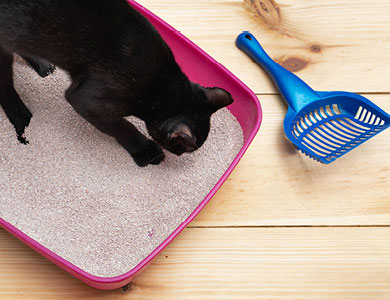
"My cat has always used a litter box that's too small"
Many cats will resign themselves to using a litter box that's too small, but that doesn't mean they find it enjoyable. Daniel Filion explains, using another powerful analogy: "When you're camping and the only available option is the campground's often dark, dubious, smelly and overly small toilet, you'll use it anyways because you have no choice, but that doesn't mean you find it pleasant. Now, imagine that you live in that campground permanently and that, one day, a magnificently clean toilet is installed in a spacious and well-lit bathroom. Which one would you choose?"
That's exactly what the Cat Educator recommends you do with your cat to know for sure. Add a litter box that meets all the criteria specified in this article and let your cat choose between old and new to see which one it prefers.
Daniel Filion has one last bit of advice: "Wait about 7 days before deciding on your cat's litter box preference when you make a change. Cats are creatures of habit, and are often fearful around new things. Your cat will let you know whether it likes the spacious new open litter box."








